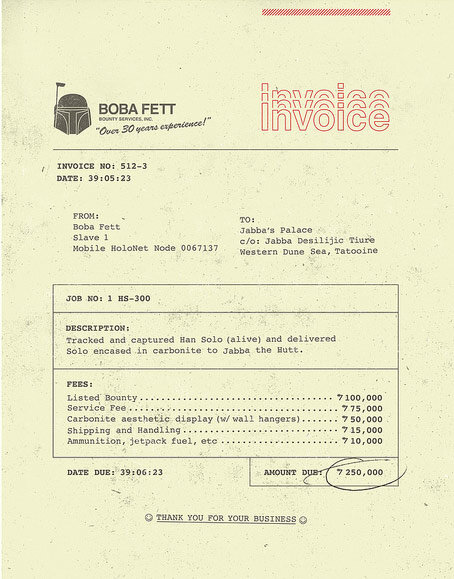Explore Small Business Finance Topics
Discover our most popular topics for Canadian solopreneurs and small business owners. From income tax and GST/HST to QuickBooks tutorials and managing your business finances, these guides are designed to help you move from financial uncertainty to financial confidence.
Click on any topic and scroll down to see related articles.
📑Canadian Income Tax
Guidance on filing and planning your Canadian taxes, from T1 and T2 returns to instalments
📊Managing Business Finances
From cash flow to pricing and metrics — learn to manage your business finances with confidence.
🏢 Canadian Business Structure
Should you incorporate? Stay informed on sole proprietorships, corporations, and registrations.
💰 GST/HST & QST
Understand how to register, file, and maximize input tax credits while avoiding common mistakes.
🧾 Guides and Tutorials
Practical accounting processes like reconciliations, journal entries, and reporting.
📝 Deductions & Expenses
Learn which expenses are deductible and how to track them for maximum tax savings.
Quebec Taxes & Business
QST, Revenu Québec filings, Quebec payroll, and provincial rules every entrepreneur should know.
👤 Paying Yourself
Salary vs dividends, management fees, and how to pay yourself from your corporation or small business.
💻 QuickBooks Online & Tools
Tutorials, guides and time-saving tips for using QuickBooks Online effectively.
🏦 Money & Personal Finance
Personal finance strategies for entrepreneurs, from RRSPs to saving for taxes.

Revenue Canada Interest, Penalties and Payment Arrangements for Income Tax and GST/HST Returns
Whether you are an individual or a business in Canada, taxes are an inescapable part of your existence. All sources of income need to be calculated, tax returns needs to be filed and taxes owing must be paid. This is somewhat facilitated if you are an employee as your employer tends to take care of the majority of remittances. Self-employed individuals, sole proprietorships, partnerships and corporations on the other hand, must account for their income and expenses , determine taxes payable and remit the appropriate amounts. Additionally, businesses are also responsible for other filings including GST/HST and QST and payroll. A lack of knowledge, imperfect accounting systems and the business of running a business sometimes interfere with the timeliness of filings. The Canada Revenue Agency attempts to curb these tardy behaviours by imposing penalties and interest on late filings as follows:
Unincorporat

Is the Quick Method of Reporting GST/HST & QST the Right Choice for your Small Business
If you are self employed or a small business with annual sales between $30,000 and $400,000, it might make sense to select the Quick Method of reporting your GST/HST and QST, which is essentially a simplified method of reporting sales taxes . While regular reporting of sales taxes requires that you calculate all amounts collected and paid on eligible expenses, the quick method (or simplified method as it is also referred to)requires the application of a single reduced rate to your sales while GST/HST and QST paid on expenses is not deductible. The key details of the Quick Method and its suitability for your business are discussed below:

How The CRA AII Program Increases the Tax Deduction for Computers and Other Fixed Assets
In the fall of 2018, the federal government decided to introduce a tax incentive called the Accelerated Investment Incentive (AII). The purpose of this program was to stimulate business investment by increasing the amount of capital cost allowance (CCA) on depreciable property (the terminology, sadly, is a bit less stimulating). In layman’s terms, it means you could claim a higher amount of depreciation on assets such as computer, equipment, furniture etc, in the year of purchase, thereby reducing your taxes in the short term.

9 Tips for Building a Sales Forecast
Having a dynamic, regularly updated sales forecast can be essential to the success of a small business. By forecasting your sales revenue you are helping to control for its unpredictability, an inherent risk in any business venture, and prepare for the decisions that are essential to your business profitability. Whether your sales are increasing, decreasing or static, it is always better when decisions are made proactively rather than reactively.
Building your small business sales forecast can be as simple as you want it to be and does not require an accounting degree , particularly when your business is in the early and/or startup stages. Below are some tips to help you create your sales forecast:

What Are the Next Steps After Incorporation
Once you have decided to establish a new corporation, there are certain best practices that you should implement to ensure that your corporation runs smoothly right from the beginning. If you are transitioning from a sole proprietorship to a corporation (unincorporated to incorporated entity), there are some additional steps that you need to take. By being proactive, you can turn your mind to your actual business and avoid unpleasant surprises (such as incomprehensible letters from the government and inconvenient deadlines). This article looks at the next steps you need to take after you have incorporated your business.

How to Read a Profit and Loss Statement
Whether you're just starting out or a seasoned business owner, it is imperative to understand the financial health of your business. This can be done via a variety of different types of analyses. In terms of the big picture and overall performance of your business, the reports that are collectively referred to as the financial statements are the most crucial .
The financial statements typically comprise three reports: the balance sheet, profit and loss statement and statement of cash flows.
Some of you might be intimidated by the technical terminology of accounting. But, in reality , the profit and loss statement (also know as the income statement) is actually quite easy to read and understand especially as it relates to your own business.

5 Reasons Your Small Business Needs an Accounting System
So, what exactly is an accounting system? At its core, an accounting system is a method of organizing your financial data. There are various types of accounting systems out there, ranging from complex enterprise solutions to simple small business accounting software like QuickBooks. You can even use a spreadsheet if your business is straightforward with minimal transactions. The key is to have some system in place to manage your finances effectively.
Now, let’s explore the five reasons why every small business, including yours, needs an accounting system.

9 Tips For Managing Your Customer Receivables
Any sales that occur within a business where payment is not made up front (eg. retail) or in advance of the sale (eg. down payment for a car), is reflected as an “Accounts Receivable”, which is accounting terminology for amounts owing by customers to a business. It is good to have accounts receivable, as this means you are generating sales. The downside, however, of having accounts receivable is that it represents cash that you don't have now, and along with that comes the possibility that your customers won’t pay you. Luckily a good system to manage your accounts receivable will help to reduce the number of non paying customers thereby avoiding bad debts. Below are some steps to help manage and collect on your accounts receivable:

10 Financial Challenges of Being a Solopreneur
Being a solo entrepreneur or solopreneur (to use the pithier term) can be extremely rewarding but also brings some unique challenges. It can be a lonely existence, as you often work from home, and don’t have a water cooler where you can discuss the latest tv show you are watching. You have to become an expert on subject matters well outside of your subject of expertise, as all of us who have to troubleshoot a computer problem or write our own copy for social media and blogs, can attest to. There is no-one immediately availably to bounce ideas off of. And we have to work much harder at establishing process, routines and accountability since we don’t have a boss breathing down our necks.
In addition to all of this, solopreneurs often face specific accounting, tax, and finance challenges.

7 Qualities of Highly Desirable Clients
When you are a business owner/freelancer, there is wonderful feeling of gratification when you land a great client. These are clients that ask great questions, respect our work and make us feel happy to have chosen the entrepreneurial route. Then there are the not so great clients who have unrealistic expectations, are unimaginative and often just plain clueless.
It should also go without saying that we must also do what it takes to be provide an excellent experience to our clients and customers. It is not dissimilar from being in a relationship with a partner or spouse and for both sides to get the most out of it, you as the service provider, must also be responsive, respectful, fair and transparent.

Adopt These 9 Money Habits to Increase Your Net Worth
One way to reinforce habits is to celebrate small wins. If you eat slightly less junk food or exercise a bit more, you can count it as an accomplishment. The positive reinforcement helps to make us feel better, inspire confidence and slowly build habits that makes reaching our goals a bit easier. This is particularly true with financial discipline. It is important to recognize that, like any habit, it is a process that takes time. The good news is that there are tangible metrics to measure your success e.g. when you have more in your investment accounts or a higher net worth.

Essential Facts about Shareholder Loans for Incorporated Small Business Owners
There are three primary ways in which you, as an owner-manager, can withdraw funds from your corporation. You can pay yourself a salary, you can declare a dividend or you can borrow money from the corporation. When you borrow money from your own corporation the Canada Revenue Agency (CRA) has put into place strict rules as to when you have to repay the loan to ensure that the owner-manager does not avoid paying taxes indefinitely.

How To Account for Car Expenses and Reflect Personal Use
If you use your car for business then you will want to track car expenses more granularly to see what you have spent in the current period and to compare with prior periods and also to make it easier to reflect the breakdown on your small business taxes

Deferred Revenue and its Impact on your Small Business
Most small business owners are familiar with the concept of revenues, which is essentially the total sales of their product or service, to customers and clients, prior to deducting any costs. Revenues are a crucial component of business’ profit and loss statement and it is essential that they are accurate so that the business owners may effectively analyze the profitability of their businesses. Additionally there are third parties for which the accuracy of the revenues, and corresponding financial statements, is essential for effective decision making. Third parties include tax authorities, banks, partners and key employees (on which remuneration/bonuses might be based).

What Types of Car Expenses Can Business Owners Deduct
Access to a car can be crucial to running a small business effectively. Costs of ownership, however, can be high relative to your revenues, especially in the early stages when your business is not hugely profitable. Luckily, Revenue Canada (CRA) and Revenue Quebec (RQ) allow both unincorporated/self employed individuals and owners/employees of corporations, who use their cars to generate income, to deduct the relevant expenses. Both CRA and RQ provide detailed guidance and have specific rules relating to the write off of car expenses. I discuss some of the main provisions that impact small business owners in this article and provide guidance on the differences between unincorporated (self employed/small business) owners and corporations.
